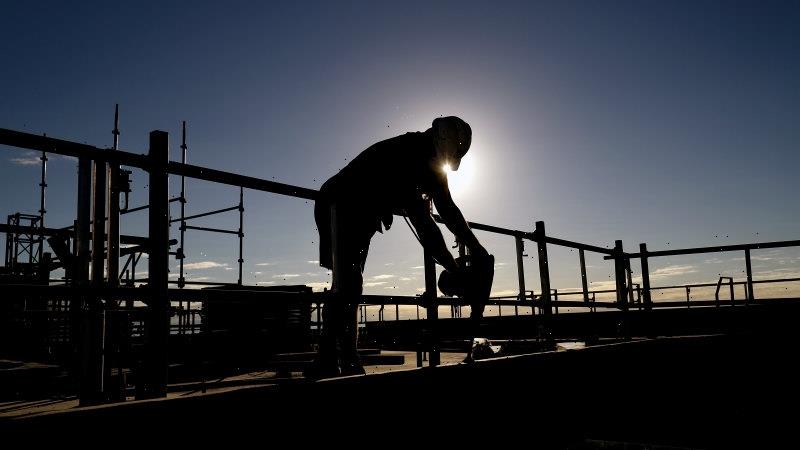Key points
- Introducing legislation to set up the housing future fund on Thursday, Housing Minister Julie Collins acknowledged the escalating problems in Australia’s housing system.
- The government revealed it will release up to $500 million a year from the fund to boost social and affordable housing.
- Treasurer Jim Chalmers will use a meeting of the nation’s treasurers on Friday to press for ways to improve the supply of homes as soon as possible.
Treasurer Jim Chalmers will give the states and territories until June to come up with ways to overhaul their planning and zoning regulations in a bid to help build 1 million homes across the country by the end of the decade.
As the government revealed it would release up to $500 million a year from its planned housing future fund to boost social and affordable housing, Chalmers said he would use a meeting of the nation’s treasurers to press for ways to improve the supply of homes as soon as possible.
Treasurer Jim Chalmers will talk to state and territory treasurers about ways to boost housing supply across the country.Credit:Bloomberg
Chalmers announced in the October budget the government’s National Housing Accord proposal to build 1 million homes. It was in response to growing concern about Australia’s high-priced housing and rapidly tightening rental market, which in many parts of the country has a vacancy rate approaching 1 per cent.
The accord includes the $10 billion housing future fund, more investment from the private sector in affordable housing, and the possible release of Commonwealth land for property development.
A key element is faster zoning, planning and land release by state and territory governments, particularly around “well-located” state land near train stations and TAFE campuses.
Chalmers plans to discuss a work plan between all levels of government to implement the housing accord at Friday’s meeting of the Council on Federal Financial Relations, comprising all state and territory treasurers.
The talks will focus on encouraging states and territories to have jurisdiction-specific plans by June to boost housing supply ahead of the 1 million house target, which is due to start in mid-2024 and run until mid-2029. Much of that supply hinges on improving the speed around rezoning and property approvals.
“We’ll further our efforts to address housing affordability and supply and discuss the work we will do in coming months to develop a pipeline of new affordable housing projects under the National Housing Accord announced at the budget,” Chalmers said.
Introducing the legislation to set up the housing future fund on Thursday, Housing Minister Julie Collins acknowledged the escalating problems in Australia’s housing system.
“For ordinary Australians, housing problems are now widespread and visible to all of us. And across our country cities and towns, the dream of a secure home has become so much harder,” she told parliament.
“Home is the foundation from which we build our lives. Without a stable home, people no matter their age, struggle to live in good health, stay in training or education, and find or keep a job. It’s not good for them or their family.”
Interest earned on the fund will be channelled into the government’s housing agenda.
Up to $500 million a year will be used to build social and affordable homes, repair and maintain housing in remote Indigenous communities, provide transition housing options for women and children leaving domestic violence, and fund specialist services for veterans experiencing homelessness.
Collins said of the 30,000 homes to be funded under the scheme, 20,000 would be social housing, of which 4000 would go to women and children leaving domestic violence or older women on low incomes at risk of homelessness.
Another 10,000 affordable homes are planned for essential workers such as police, nurses and cleaners.
The housing future fund will be managed by the Future Fund’s board of guardians. It will be subject to a review in five years.
“The $10 billion fund is a significant investment to deliver long-term returns to support more social and affordable housing, and invest in acute housing needs,” Collins said.
Greens housing spokesman Max Chandler-Mather said the government’s investment would not go far enough towards meeting the need for social and affordable housing, while independent senator David Pocock has expressed doubt the fund will be able to finance 30,000 homes.
Property Council chief executive Mike Zorbas said the future fund and the Housing Accord would go some way to reducing the nation’s housing issues.
“Our best hope of tackling the housing supply shortage is using the Housing Accord to incentivise national housing targets with local accountability,” he said.
Cut through the noise of federal politics with news, views and expert analysis from Jacqueline Maley. Subscribers can sign up to our weekly Inside Politics newsletter here.
Most Viewed in Politics
From our partners
Source: Read Full Article

